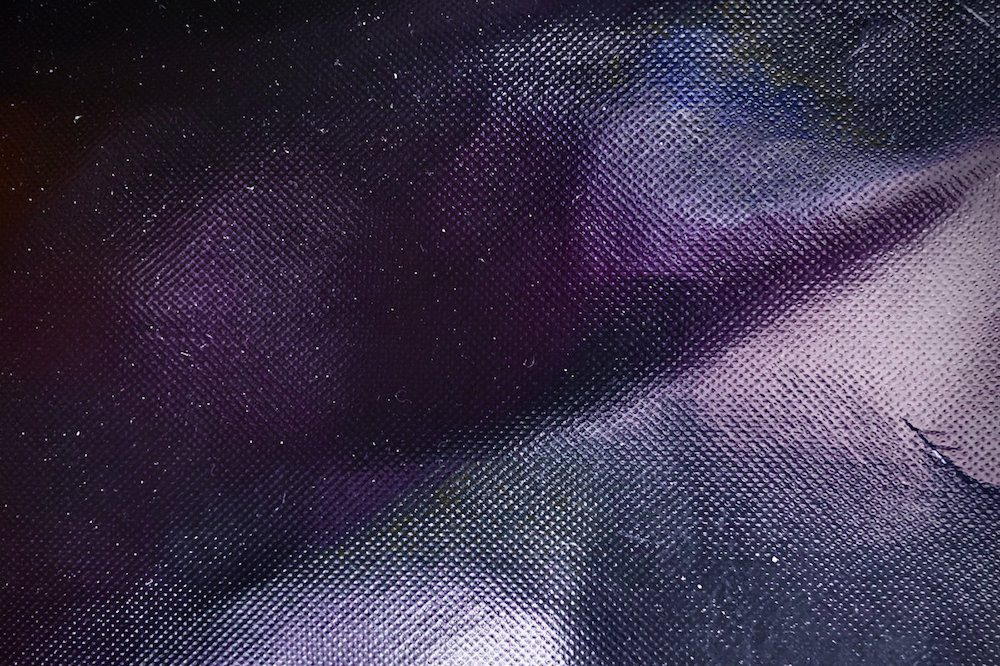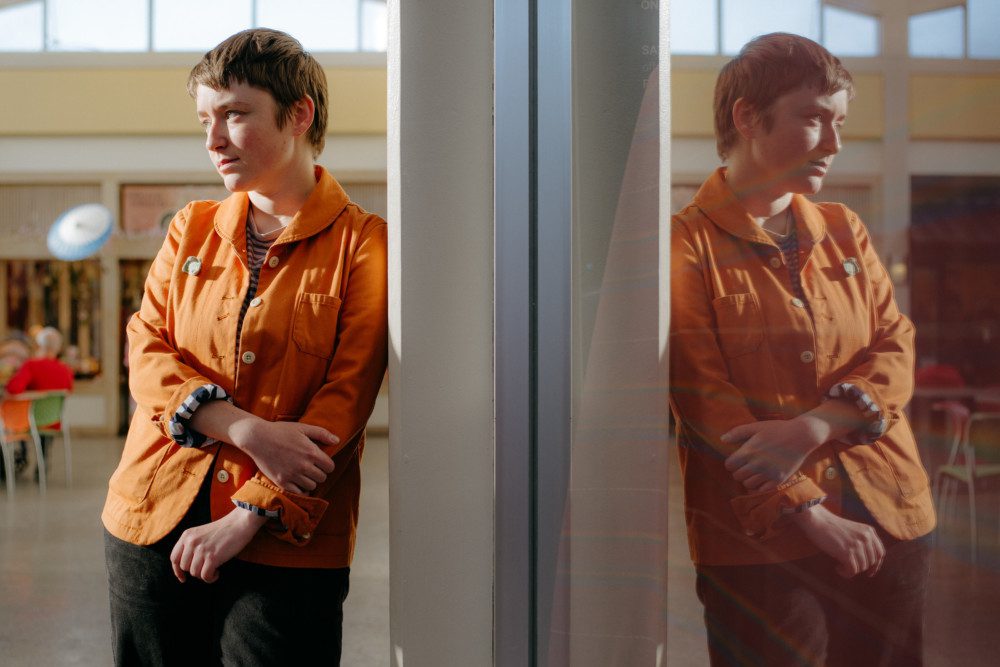

I have to say it: I do not like long albums. If an album goes over twelve tracks, the synapses of my brain will cross and I will be lost in an impenetrable fog. I’ll probably start the album late or end it early upon repeated listens, depending on which half I liked more, and live out the rest of my days in denial that I was, initially, presented with a magnum opus. Long albums have a weight shorter ones do not. It feels indulgent to me, like putting whipped cream and chocolate chips and sprinkles on the pie.
Yet, there are exceptions to every rule. Soundtracks or instrumental albums, in particular, do not have the ability to emotionally or sonically overload me before we get past forty-ish minutes. Mauve, the new electronica album from mysterious San Francisco musician Nketiah, is not only long (fourteen tracks) but hefty, with the majority of the tracks clocking over four minutes. This would be a death sentence for a pop or punk album (or a pop punk album) but on Mauve, it feels lush and earned.
It feels lush because of the distinctive soundscape it creates — close to a movie soundtrack, but not quite (it’s a little too discordant in parts). Like listening to Gustav Holst’s “The Planets” or Daft Punk’s soundtrack to 2010’s TRON: Legacy (arguably the warmest and most human aspect of that entire film) there are burst of familiar flavor here, but Nketiah avoids feeling like a retread. Mauve is complex enough to send you places, and some of those places you have certainly been before. Over the course of the fourteen tracks, I was in the future, where an android speaks to me in staccato busts (“Drinks”); I was in the present, where the almost-forgotten experience of party ambiance becomes song (“Aura”); and I was in the past, imagining what the blue, opera-singing alien from semi-trashy sci-fi classic The Fifth Element listens to in her free time (“Open”).
The human voice is largely percussive on Mauve, but not in a beat-box way. It’s not the backbone of the tracks, but just as important and impactful as any other sound, except perhaps on “Shade II” which features snatches of discernible conversation that have largely not been tinkered with.
The most impressive uses of percussive voice are in “Bunk” and “Newform.” The former even uses one of my favorite music tropes: pretending like the song is going to end on some sort of dampened, single buzz of a note before bringing all the noise back at once. It’s the Phil Spector Wall of Sound, if Phil Spector was an immortal android who wished he had a human face. “Newform” is much longer, combining Stranger Things synth-y coldness with moments of warmth that come from a delicate, fuzzed-out effect and choral-like layered vocals that, if you weren’t expecting them, can give some real chills.
It’s not all dark smoky room stuff here, however — the watery fish-tank energy of “Midrain” ends abruptly for the lead-in to “Womp,” which overall sounds like a classical composer who had a little too much E. It’s truly an odd aside for the album, which normally slides from one track to the next more subtly. It’s not unforgivably jarring, however — the Nketiah touch does not particularly like to single out any one sound, and “Womp” is no exception. For another example, the very end of “Balance” reminded me of a ’90s dial-up noise, but I had to think on it for a bit until I was able to clock the memory. Nketiah knows that the impact here comes not from the sounds themselves, but from weaving and stitching them together into some semblance of a whole, one where you can barely see the frays and snags. And the ones you can see — well, there’s still something to be said for the fallibility of a human touch.




